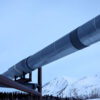What’s the best cure for a recessionary environment? Apparently, raising energy prices and killing jobs. The Obama Administration admitted to both because of the Department of Interior’s (DOI) newly announced offshore drilling safety regulations. Katie Howell of E&E reports:
The Obama administration is acknowledging that its new offshore drilling safety regulations will raise costs for the oil and gas industry—and may also delay some offshore development, slightly increase gas prices and kill some jobs.
The new rules unveiled last week would increase operating costs by an estimated $1.42 million for each new deepwater well drilled with a floating rig, $170,000 for each new deepwater well drilled with a platform rig and $90,000 for each new shallow-water well, according to an Interior Department notice released yesterday.
DOI called the costs “not an insignificant amount” and said it would only increase drilling costs 2 percent and 1 percent for deepwater wells and shallow-water wells, respectively. Although the cost increase would not be enough to affect world markets, “it could also lead to job losses at the more than 130 companies that own active leases in federal waters and more than a dozen drilling contractors and their suppliers,” Howell writes.
Interior Secretary Ken Salazar says the increased costs are worth it because it will reduce the likelihood of another BP-like spill. How much will it reduce the risk? He doesn’t say.
It’s easy from a public relations standpoint to say we need newer and tougher regulations to prevent such a catastrophe from happening again. The Administration did the right thing by separating the federal regulators responsible for promoting energy sources and those responsible for enforcing regulatory standards. But the stricter regulations could unnecessarily stifle offshore oil and gas exploration and production, especially for smaller companies. Dan Naatz, vice president of federal resources at the Independent Petroleum Association of America, said:
When you look at this issue of increased compliance cost, increased regulation coupled with discussions of unlimited liability … all make, certainly, some amount of uncertainty for our producers, if not flat-out stop them. They’ll have to take a very serious look at whether to continue operating in the Gulf of Mexico. Will it stop activity in the Gulf? I’m not saying that, but it certainly will make us take a serious look.
Some oil companies may even be willing to accept the new regulations because it provides some certainty in the business. Yet given this certainty, Salazar has chosen not to lift the drilling moratorium. They’re still not issuing permits for deepwater or shallow water activities, and despite reports that the economic effects of the moratorium have been overestimated, the drilling ban is having serious effects on the Gulf region.
Instead, Congress should implement a program that accurately assigns risk to offshore oil and gas operators, holds them fully liable, promotes safety, and guards against frivolous lawsuits. Assigning liability calculations and insurance premiums to accurate risk assessments will create a strong financial incentive to operate safely. Including a third-party safety certification process will ensure that the best techniques and technologies are being used will be complementary to federal regulations.
The oil industry should create an independent organization to collect/distribute safety data, establish and certify best practices, and share information, as appropriate, with federal regulators. Third-party monitoring would reduce corner-cutting and provide sufficient response time to anomalies. Further, safety certifications from such an organization could inform insurance premiums and risk assessments. This could be done in a much more cost-effective manner that would allow drilling to continue in the Gulf without destroying jobs.
For more, check out the full plan, Oil Spill Liability: A Plan for Reform.




























